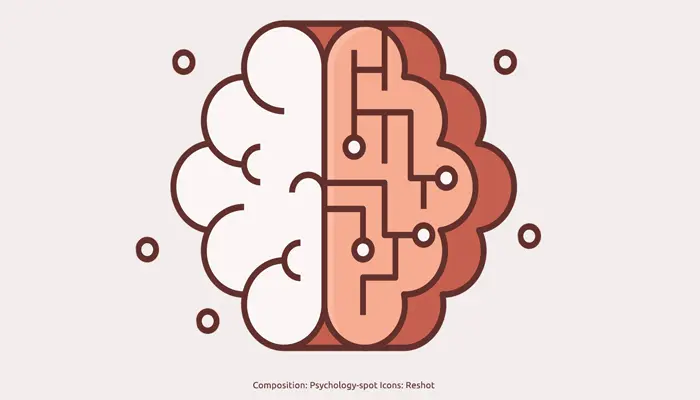
What is that smell? Don’t you smell it? Doesn’t it smell like spoiled food, burnt plastic, smoke…?
If you are over 40 years old, it is likely that it has happened to you on more than one occasion. You perceive a penetrating smell but the people next to you do not perceive it. How is it possible? It is not that you have super powers but that you suffer from an olfactory hallucination or phantosmia.
What is a phantom smell?
Phantosmia is a phenomenon that occurs when we perceive an odor that does not have a real source in the environment. The phantom smell was first discovered by the French neurologist Jules Cotard in the late 19th century. In his clinical work, Cotard noticed that some of his patients, suffering from depression and mental disorders, experienced persistent unpleasant odors that were not present in their environment.
Although Cotard initially attributed the perception of these odors to mental problems, over time he realized that it was present in many of his other patients who did not present any other psychiatric symptoms, so the phantom smell was a real phenomenon and objectifiable. Now, a study developed at the University of Vermont discovered that 1 in 15 people perceive odors that are not in the environment.
After analyzing 7,417 people, these researchers found that the prevalence of phantom smells is not related to our ability to correctly identify odors. That is to say, no matter how fine the nose is, it can happen to everyone.
Interestingly, people between the ages of 40 and 60 experience more phantom smells. This phenomenon is also more common in women, who are twice as likely to perceive non-existent odors, especially those under 60 years of age.
Phantosmia: causes of phantom smelling
This olfactory experience can be a sign of an underlying health problem or a completely harmless experience.
1. Health problems. In some cases, a phantom smell can be a sign of an underlying health problem, such as a brain injury, sinus infection, or neurological disease. In other cases, phantosmia can be a symptom of psychiatric disorders such as depression or anxiety. It has also been associated with persistent dry mouth sensation.
2. Side effects of medications. Some medications can cause a phantom smell as a side effect. Drugs used to treat epilepsy and migraine, for example, have been linked to phantosmia in some people. Also under scrutiny are some chemotherapeutic agents, antihypertensives, certain antibiotics, and medications for depression.
3. Alterations of the olfactory system. Phantom smell can also be caused by disturbances in the olfactory system. For example, aging, injuries to the nose, or problems with the olfactory nerves can affect our ability to properly perceive odors. In fact, it could be related to hyperactivity in the odor detection cells in the nasal cavity, or to a malfunction in the part of the brain that interprets these signals or a decreased neurogenesis in the olfactory bulb.
4. Environmental factors. Phantosmia can also be a response to environmental factors such as air pollution, tobacco smoke, or chemicals. People exposed to these factors may perceive odors that are not in the environment due to nasal irritation. In fact, phantosmia is more common in smokers than in ex-smokers or those who have never smoked.
5. Differences in olfactory perception. There may be odors present in the environment that are not detected by other people due to differences in olfactory perception. Also, odors can be perceived differently by each person, which means that a smell that one person describes as “ghost” could be perceived as real by another.
Different hypotheses are currently being considered to explain the causes of phantosmia. For example, the biological mechanism of phantom smell perception is thought to be due to aberrant peripheral olfactory sensory neurons, which activate perception centers in the brain in the absence of an odor. It could also be overactive brain cells that create that false perception.
Phantosmia due to anxiety and stress?
In some cases, anxiety could also be at the root of phantosmia. Neuroscientists at the University of Wisconsin-Madison exposed a group of people to a series of disturbing images, such as car accidents and war scenes, to generate a state of anxiety and stress. Meanwhile, they were scanning their brains.
They found that stress and anxiety caused the brain circuits for smell and emotion to “cross over”. These researchers explain that normally, these brain circuits don’t “talk” to each other, but they do connect when we experience stress-induced anxiety. That means that stressful experiences transform neutral odors into unpleasant ones.
Just as a scent can trigger different emotions, when we feel anxious or stressed, the emotional system becomes part of the olfactory processing stream. These neuroscientists also suggested that this effect could accumulate over time; that is, the more anxiety we experience, the more cross-wiring between these two brain circuits becomes stronger, resulting in more neutral scents becoming unpleasant and we experience those phantom smells more often.
How to differentiate a phantom smell from a real one?
It should be noted that not all subjectively perceived odors are “phantom”. It is possible that there are odors in the environment that other people do not detect due to differences in olfactory perception. Also, everyone can perceive smells differently, which means that a smell that someone describes as “phantom” could be perceived as real by another person.
To determine if an odor is real or phantom when no one else is with us, we must analyze the source of the odor to make sure it is not coming from the environment and is a false alarm. In many cases, the phantom smell is not confined to one place, so it is impossible to find where it comes from, unlike real odors, which become more intense as we get closer to their origin.
How to deal with phantom smells?
“Phantom smells” are a relatively common experience and usually does not cause problems beyond the annoyance caused by the odor. In most cases they go away on their own, but they can also get worse over time.
Distorted olfactory perception usually affects quality of life, although it is often a problem that is trivialized. However, it can cause frustration and great insecurity in those who suffer it since they cannot trust their sense of smell to detect possible dangers, from the smoke of a fire to food that has spoiled or the smell of a natural gas leak.
When the phantosmia worsens, the person remains alert and tense all the time. For that reason, if it happens to you often, it is important that you seek the help of a professional who can rule out medical or psychological causes.
Phantosmia is approached in a multidisciplinary way, so it is better to first consult an otolaryngologist, who will perform an olfactory test. If no problem is detected, the next step is to rule out a brain lesion with a neurologist. In the event that no physical source can be found to explain the phantom smell, you will need to seek help from a psychologist to treat anxiety, depression, or any other problem that is at the root of this condition.
Sources:
Bainbridge, K. E. et. Al. (2018) Factors Associated With Phantom Odor Perception Among US AdultsFindings From the National Health and Nutrition Examination Survey. JAMA Otolaryngol Head Neck Surg; 144(9): 807-814.
Krusemark, E. A. & Li, W. (2013) From Early Sensory Specialization to Later Perceptual Generalization: Dynamic Temporal Progression in Perceiving Individual Threats. Journal of Neuroscience; 33 (2): 587-594.



